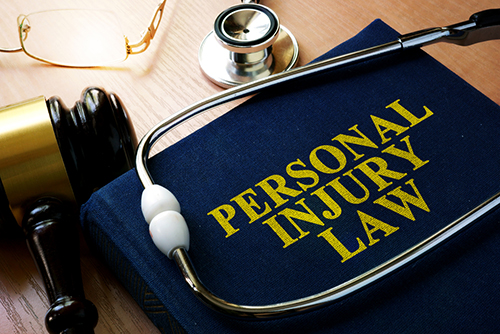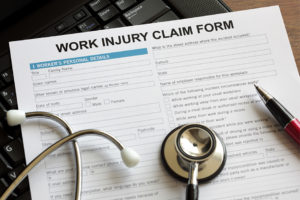You don’t have to work in an obviously dangerous workplace to have an accident that results in injury. When you get an injury from an accident at work, a workplace injury lawyer can help. They know the common mistakes that can ruin your workers’ compensation case. Everything you say and do from the time of the accident matters. If you feel dazed or disoriented from the accident, it can make it more difficult to think clearly. Some people even feel embarrassed about their injuries. Don’t let these types of feelings get in the way of your workers’ comp claim. Below are ten of the most common critical mistakes people make after a workplace injury.

- Failing to Document the Details Right After the Accident
Don’t leave it up to witnesses who were in the area to tell your story. The details that led up to the accident weren’t important until the accident happened. You know better than anyone how the events unfolded. Write everything down and include even minor details. Include everything that lead up to the accident. What else was taking place at the same time? Note anything that you or your coworkers said that relate to the accident. Also include any comments about your injuries by emergency personnel.
- Being Dishonest About the Severity of Their Symptoms
Just as some people feel embarrassed about their injuries, others feel the need to embellish. They think that this will help to strengthen their case. The opposite is often true. Evidence that shows your injuries aren’t as serious as you claim will invalidate your claim altogether.
- Not Choosing Their Own Doctor
Workers’ compensation laws vary by state. In California, you can choose your own doctor if your employer provides group health coverage and the doctor you choose is already your primary care physician. Your doctor knows your pre-existing conditions and the impact your new injury has made. In addition, you, your attorney, or the claims administrator can request an examination by a Qualified Medical Examiner.

- Not Following Their Doctor’s Advice
Failing to go to follow-ups, get treatments, taking medications, or show up for additional tests your doctor prescribes or recommends will invalidate your injury. Not only will this hurt your workers’ comp case, it can make your injury worse.
- Failing to Return to Work When Released
Depending on the type of work you do, your doctor may determine you can safely return to work on “light duty.” Don’t take the attitude that this type of work is beneath you. It gives your injuries credibility. If you experience pain or discomfort performing your lighter workload, talk with your doctor about your symptoms.
- Ignoring the Restrictions Their Doctor Gives Them
People tend to test their limits, even when they have painful injuries. You need to move something out of the way or your car really needs washed and you don’t want to wait for someone else to do it. The restrictions your doctor gave you will protect you from further injury. They give your body the time it needs to heal. It also puts you at risk of getting filmed by the insurance company. You never know when someone is close by with a video camera in the hopes of getting proof your injuries aren’t as severe as you claimed.
- Failing to Double-Check the Figures for Your Weekly Wage
The workers’ compensation adjuster is responsible for determining your average weekly wage. This amount determines how much workers’ compensation you are eligible to receive. Often, they fail to include the amounts you receive for overtime, vacation pay, or company incentives. To double-check the amount, add all of your pay for the previous 52 weeks excluding bonuses and divide the total by 52.
- Being Dishonest with Their Attorney
Always be honest with your workplace injury lawyer and disclose all of the facts of the accident and your injury. Include any pre-existing conditions and current medical treatments for which you already receive treatment. In addition, tell him about any previous legal issues or records the insurance company can use to discredit you. These include previous workers’ compensation claims, your employment history, drug or alcohol use, and anything else that might hurt your case. Never assume that anything will stay hidden. Give your attorney the information he needs to protect your case.

- Waiting Too Long to File a Claim
The severity of workers’ comp injuries varies greatly. Some require emergency medical treatment and others occur due to exposure over time. You must report your injury to your employer within thirty days of the day the accident occurred or from the time of your diagnosis with a work-related illness.
Reporting the injury to the employer is not the same as filing a workers’ comp claim. The time limit for filing the claim is longer but depends on a number of conditions. The importance of filing your claim on time cannot be overstated. If you wait too long, you will lose your rights to workers’ comp and your claim will be denied.
- Failing to Hire the Right Workplace Injury Lawyer
Many people believe that any attorney has the necessary skills to handle their workers’ comp claim. What they don’t realize is that workers’ compensation is an area of specialty that requires a specific level of knowledge and skills. You need someone who understands your rights according to your state and the circumstances that led to your injury. An experienced workplace injury lawyer understands the impact your injury has on your life. You have a right to fair compensation and they will use every legal tool available to them to get results.
The dedicated team of attorneys at The House of Workers’ Compensation has the knowledge and experience to get results for you. They accept clients with either accepted or denied claims. They know the changes to California workers’ comp law have made it even more important to get quality representation. Contact The House of Workers’ Compensation to schedule your free consultation today.




